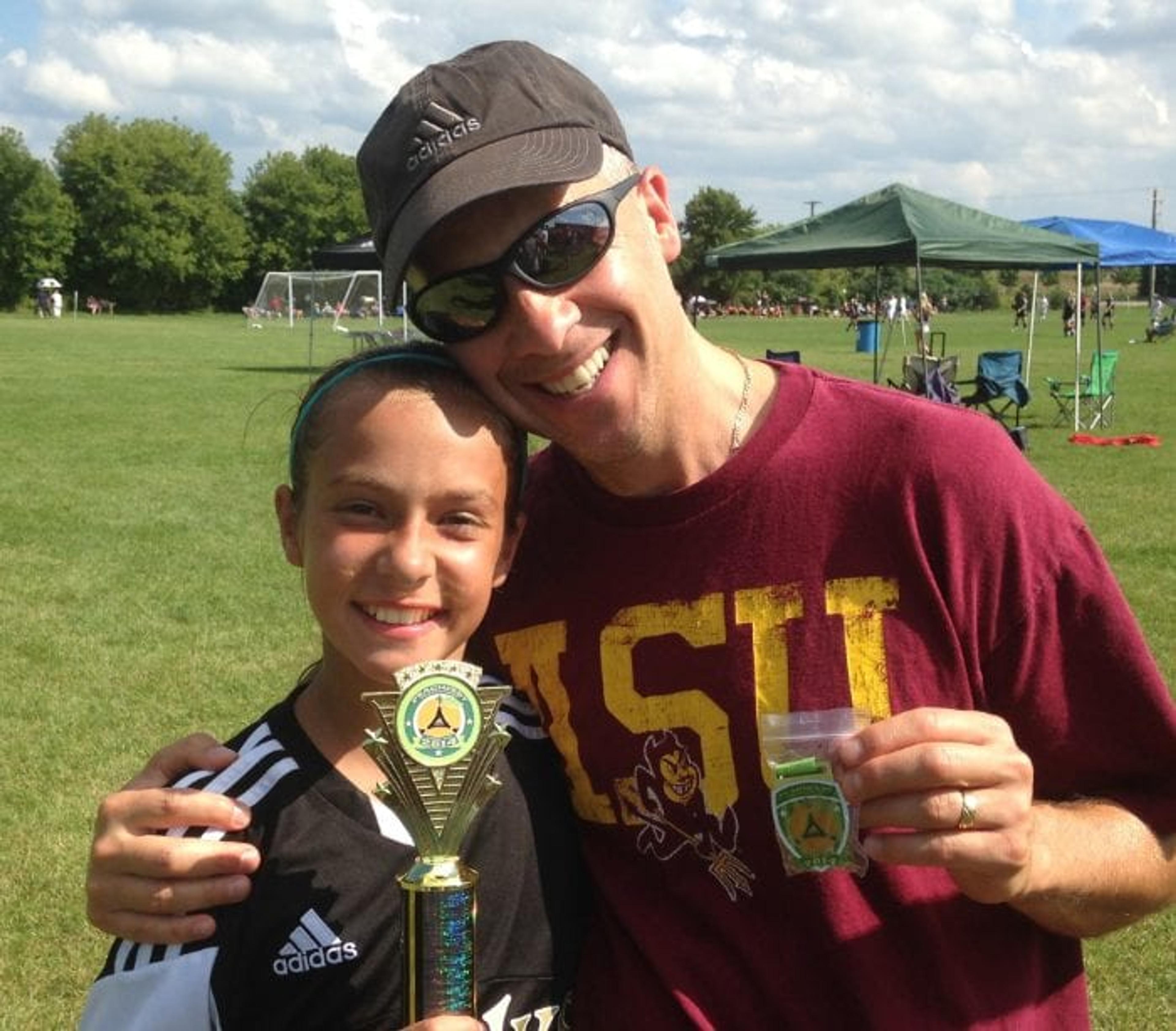
My daughter Karia has always been a healthy kid. She loves soccer and is constantly on the run. Sometime in the 6th grade, Karia started to experience bursts of significant stomach pain. The incidents were random, but the pain was the worst when she was doing what she loved the most – playing soccer.
My wife and I took her in for a checkup and our pediatrician confirmed what we already knew: something was wrong. Karia has always been small, but she had now completely fallen off the growth chart. And it wasn’t just her weight, her height increase stalled as well.
I’ll never forget how brave our 11-year-old was when it was time to head to the hospital.
We explained the random and seemingly unrelated symptoms we'd been noticing for months, and our nurse practitioner, Jenny Berry, ordered a few tests to determine the cause. When the standard tests didn’t lead to a diagnosis, Jenny wanted to test for something she had experience with, celiac disease. When someone tells you your child might have a disease, your heart stops. In this case, I was even more worried because I had no idea what celiac disease was. My daughter might have what? What does this mean for the rest of her life? Before we could know for sure, Karia had to have a biopsy of her small intestine. I spent weeks researching celiac disease, an autoimmune disorder where eating foods with gluten damages the small intestine. I’ll never forget how brave our 11-year-old was when it was time to head to the hospital for her biopsy. It was then that her diagnosis was finally confirmed.
No More Gluten
Karia’s diagnosis changed our whole life. While we were relieved that there was no risky treatment or medication involved, removing gluten from someone's diet is not as simple as it may seem. Gluten is everywhere, especially in foods most kids love like pasta and pizza. Nearly all of Karia’s meals have to be cooked at home. We only keep gluten-free ingredients in our house for the fear of cross-contamination. If I use a spoon that touched wheat to mix part of her meal, she could have a severe reaction. Going out to eat is also a risk. Karia once got very sick after ordering her meal gluten-free at a restaurant. Waiters may not realize that something like gravy has gluten, and chefs may forget to switch cutting boards or knives. All lunches and snacks have to be packed, even if there’s free pizza at school or snacks at a party. Even if a party host thoughtfully puts a bowl of gluten-free snacks out, other people may touch the food with hands that have also touched gluten.
A Family Disease

Tom Johannes and his daughter Karia A month or two after our new diet, Karia's small intestine began to heal, as did her life. The pain was gone. She gained weight and grew a few centimeters. It was magic on the soccer field. She could once again push herself athletically without fear of pain. Since celiac disease is hereditary, our nurse practitioner encouraged us to have our other two children tested. Both were diagnosed, which surprised us. Neither of them had ever mentioned any symptoms. It turns out my older daughter, 15 at the time, had been keeping her symptoms private. For us, this was a learning moment. We used this example to talk to her about the importance of coming to us about health problems, and reminding our children that nothing is too embarrassing to discuss.
A Father’s Advice
One of the biggest things I wish I knew in the beginning of this process is that celiac disease is not the end of the world. It just becomes your new normal. Did our life change? Sure. But knowing this has allowed us to make lifestyle changes to avoid long-term damage. For other parents of children who have gluten sensitivities or celiac disease, here are a few tips we’ve picked up along the way:
- Keep an eye on your kids. Pay attention to your kids, and don't brush off symptoms. If something is weird, get it checked. Karia's stomach pain seemed random and unrelated. But if we hadn't looked into it, Karia would still be experiencing that pain and damaging her health.
- Find a doctor who truly cares. Our nurse practitioner cares about our kids. She was persistent, finding answers when initial tests showed nothing was wrong. I'm a longtime member of Blue Cross Blue Shield of Michigan and having the coverage we do gave me peace of mind throughout the process of getting all three kids tested, treated and cared for to this day.
- Focus on the good, not the bad. Rather than focusing on what Karia couldn't eat, we focused on what she could. Most importantly, she could still have ice cream.
This post is part of a storytelling series we call, “Beyond the Card.” These stories will feature Blue Cross Blue Shield of Michigan members, employees, and communities who are making meaningful differences throughout our state. We invite you to follow Beyond the Card stories here at MIBluesPerspectives.com and through the hashtag, #BeyondtheCard on our social channels. If you have a story you would like to share, please feel free to contact us at stories@bcbsm.com.





